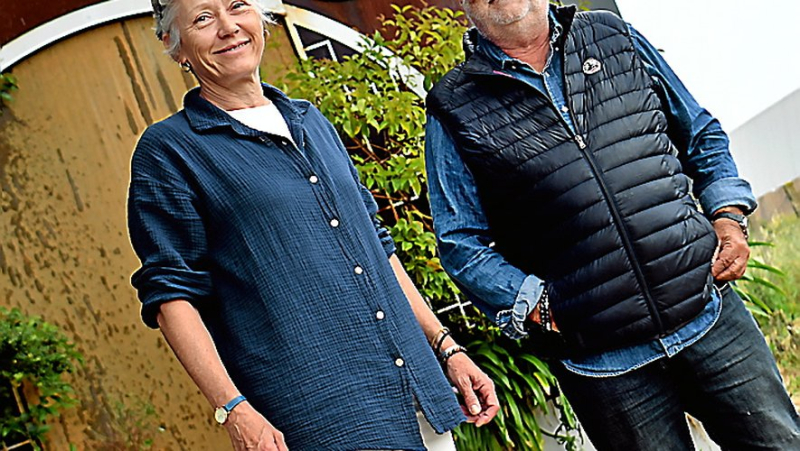On the old golf courses, the Val de Bétrine project will see the light of day

Isabelle Philippot, chef de projet et Michel d’Ozenay, patron de Senfas. Midi Libre – Alexis béthune
À Saint-Hilaire-de-Brethmas, l’entreprise Senfas prépare les cultures de demain.
A major player in organic for over 35 years, Michel d’Ozenay continues the development of the Senfas agri-food group. The boss responded to the call for projects from Alès Agglo for the use of plots planned for the construction of a golf course.
Since the program was abandoned 10 years ago, the land of Saint-Hilaire-de-Brethmas has remained unexploited. With an area of 20 hectares, the Val de Bétrine land, located under the Deaux aerodrome, will give rise to experimental exploitation.
Viable and duplicable operations
"I applied for these lands, explains Michel d’Ozenay. The idea is to create an experimental zone to envisage the agriculture of tomorrow. With climate change and rising temperatures, we must determine which plants are best able to withstand water stress, so that we can cultivate them before consuming them."< /p>
The tests will focus on crops of prickly pears, pepper trees, caper trees, an olive grove without irrigation, seedless vines… "Dried grapes are only found in Turkey. What we are going to plant, by adapting to the climatic conditions, is to transform and sell it. We have already thought about commercial opportunities."
The triptych of pragmatic agriculture: plant, harvest, sell
Convinced for a long time of the virtues of organic farming, Michel d’Ozenay nonetheless remains a pragmatic business leader. Far from dogmatic speeches, the financial aspect is taken into account: "For this experimental exploitation, we take measured risks. We are not going to make any money, but the group has the capacity to absorb the load. I want to demonstrate that this operating model is, on the one hand, viable from an economic point of view, and duplicable. We must not forget that the goal of agriculture is to feed."
And as the business leader likes to say: "Planting is good. Harvesting is better. But selling is even better."
Plantations dedicated to research with scientific partners
Today the 20 ha have given rise to an in-depth agronomic study. The plots are still fallow, but organic certifications have been obtained. Work on the land should begin in the fall, and planting is planned for the end of the year.
As part of a research program, a partnership was established with IMT Mines Alès (formerly École des Mines), the Institut Agro Montpellier, the office of Agroof studies of Boisset-et-Gaujac.
The carbon footprint at the basis of reflection
"Dried fruits, cane sugar… come from abroad. The impact of transport on the environment is not neutral but we are trying to reduce our carbon footprint", explains Michel d’Ozenay.
Isabelle Philippot, responsible for sustainable development, also project manager of Val de Bétrine, carried outé an in-depth study on the company’s carbon footprint: "This is a photograph ’ ; time T and we see how we can progress. This problem is linked to the experimental exploitation project. We want to study which food plant absorbs the most carbon. European provisions provide that manufacturers can offset their carbon production with credits that farmers could provide them, a bit like additional income." ;
I subscribe to read more




